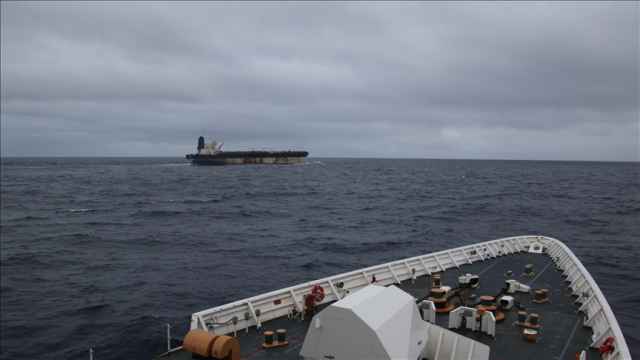The government should undertake decisive economic reforms in the next several years to reduce the country's vulnerability to external shocks and reach stable economic growth, the International Monetary Fund said Wednesday.
The economy could grow more than 6 percent a year in the midterm if the government proceeds with the right economic policy after the presidential election in March, said Odd Per Brekk, the IMF's senior resident representative in Russia.
"Provided that the right policies are pursued, the Russian economy has a potential to grow on a sustained and stable basis," he told a roundtable of foreign businessmen in Moscow.
The IMF suggested that the government focuses on reducing budget dependence on oil and gas, targeting inflation and creating a favorable environment for investors.
Bringing the non-oil deficit — the budget funding gap excluding oil and gas revenues — down from the current 11 percent of gross domestic product, as well as ensuring more effective budget spending, should be a priority for the government, Brekk said.
The budget spending in a number of fields, like education and entitlements, remains inefficient, he told The Moscow Times after the roundtable, adding that it is possible to deliver the same quality of services for less.
The IMF concurs that the government should also proceed with reforms to diversify the economy away from oil and gas, as Russia has faced severe economic instability over the last 10 years due to its excessive reliance on the energy sector.
The economy will show 4.3 percent growth this year before slowing to 4.1 in 2012, Brekk said. The IMF expects inflation to come in at 7.5 percent this year.
"Not so spectacular performance," he said.
Under the current economic scenario, Russia will remain vulnerable to shocks, with GDP showing modest growth of 3.8 percent annually through 2016 and remaining below 4 percent in the long term, Brekk said.
Although inflation will come down a bit, capital inflows will remain insignificant, he added.
Under the IMF's worst-case scenario for the country's post-election economic growth, the country might enter a recession for a year or two if oil prices fall to $50 a barrel next year and capital flight continues.
Russia saw a total of $31.2 billion in capital flight in the first half of this year, according to Central Bank estimates.
The regulator expects the capital outflow to reach about $35 billion by the end of this year, but is predicting an inflow of $10 billion to $15 billion in 2012.
Russia's accession to the World Trade Organization is key for creating a favorable environment to attract investors because WTO membership will mean that Russia complies with international regulations, Brekk said.
Economic Development Minister Elvira Nabiullina, however, said last week that the chance to complete talks on WTO accession is "very small," as the government's program to provide reduced tariffs on components to car manufacturers who have agreed to assemble 300,000 or more cars locally has turned out to be a sticking point in Russia's joining the organization.
A Message from The Moscow Times:
Dear readers,
We are facing unprecedented challenges. Russia's Prosecutor General's Office has designated The Moscow Times as an "undesirable" organization, criminalizing our work and putting our staff at risk of prosecution. This follows our earlier unjust labeling as a "foreign agent."
These actions are direct attempts to silence independent journalism in Russia. The authorities claim our work "discredits the decisions of the Russian leadership." We see things differently: we strive to provide accurate, unbiased reporting on Russia.
We, the journalists of The Moscow Times, refuse to be silenced. But to continue our work, we need your help.
Your support, no matter how small, makes a world of difference. If you can, please support us monthly starting from just $2. It's quick to set up, and every contribution makes a significant impact.
By supporting The Moscow Times, you're defending open, independent journalism in the face of repression. Thank you for standing with us.
Remind me later.





